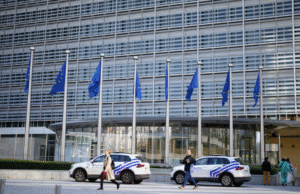Cambodia and China have signed a $1.2 billion agreement to finance the construction of a canal aimed at improving trade efficiency. The project will link a branch of the Mekong River near Phnom Penh to a port on the Gulf of Thailand, a move expected to streamline logistics. The deal for the Funan Techo Canal was finalized Thursday during a state visit to Cambodia by Chinese President Xi Jinping, who was on a tour of Southeast Asia that also included stops in Vietnam and Malaysia.
Construction of the 151.6-kilometer (94-mile) canal began last year but was paused shortly after the groundbreaking ceremony in August for unspecified reasons. Despite this, Cambodian Prime Minister Hun Manet stressed the importance of completing the project, saying it would boost national prestige, protect territorial integrity, and foster development in Cambodia.
The agreement was signed by Cambodia’s Deputy Prime Minister Sun Chanthol and Ieng Sunly from the Funan Techo Coastal-Inland Waterways Company Ltd., the private partner. The canal will be developed through a build-operate-transfer model, with Cambodian investors holding a 51% stake and Chinese investors 49%. It is expected to create a new inland waterway-maritime corridor that will accommodate vessels up to 3,000 deadweight tons. The project will involve digging the canal, constructing ship locks, and building essential navigation and logistics infrastructure.
Wang Tongzhou, chairman of China Communications Construction Company, the parent company of the contractor for the project, China Road and Bridge Corporation, said the canal would boost Cambodia’s economic growth by reducing logistics costs and supporting the country’s industrial development. The project is expected to create up to 50,000 jobs in Cambodia, both directly and indirectly.
However, the project has faced criticism over its potential environmental impact. Concerns have been raised that the canal could disrupt the natural flood patterns of the Mekong River, potentially worsening droughts and reducing the nutrient-rich silt vital for rice production in Vietnam’s Mekong Delta. Despite these concerns, the Cambodian government claims the canal’s environmental impact will be minimal, as confirmed by an Environmental Impact Assessment conducted by 48 specialists. The government also asserts that efforts have been made to avoid dense communities and cultural sites, and that a fair compensation and consultation process is ongoing.













